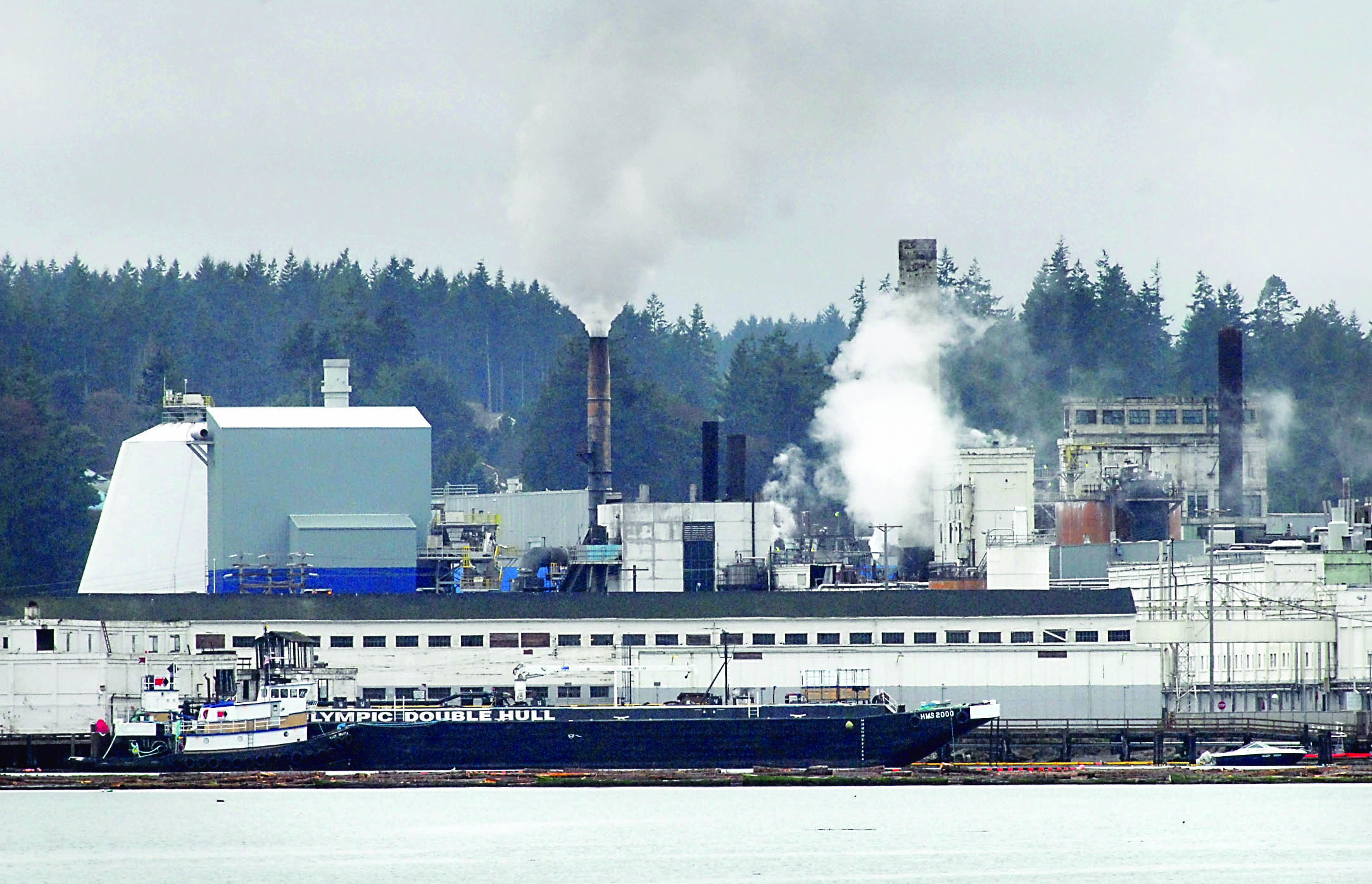PORT ANGELES — Nippon Paper Industries USA workers are scheduled to resume paper mill operations today after a two-week hiatus to repair the company’s newly expanded $85 million biomass cogeneration plant, a union official said.
“It should start Sunday,” said Darrel Reetz, vice president of Association of Western Pulp & Paper Workers Local 155, on Friday.
“Paper machine crews will be coming in.”
Plant Manager Harold Norlund has not returned calls for comment about the shutdown for two weeks.
On Friday, an assistant at the Ediz Hook plant’s main office west of Port Angeles said Norlund “did not have any comment.”
Reetz said new screws have been installed on the fuel system, a central cause of the shutdown.
Hog fuel, the woody debris used in biomass-fired plants, was not adequately feeding the mill’s new boiler, Reetz said.
The boiler burns wood waste to create steam for the plant and generates electricity for sale.
In addition, the boiler’s ash processing system was getting clogged, he said.
That problem, too, has been rectified, Reetz said.
Shutdown preparations began Feb. 18 and were completed by Feb. 23, throwing most of the plant’s 119 employees out of work for an unpaid spell, Reetz said.
Employees received notices Feb. 18 saying company officials were moving up a two-week scheduled maintenance shutdown scheduled for April.
Some non-biomass-related maintenance also has been conducted in the past two weeks, Reetz said.
About two dozen workers have been at the plant during the shutdown conducting ongoing maintenance.
Nippon’s human resources department designated some maintenance jobs to the out-of-work employees, he said.
Others sought temporary employment through WorkSource, the state’s official site for online employment services, or filed for unemployment.
Employees also were given the opportunity to cash in their vacation time, Reetz said.
Current payroll figures were unavailable, but in July 2011, Nippon’s annual payroll was $25 million for about 200 employees.
The cost of the expanded biomass plant originally was estimated at $71 million.
It rose to $85 million because of higher-than-expected costs for the cooling tower and redesign of the fuel silo and foundation.
The capacity of the plant is 20 megawatts, but it has been able to produce only about half that since it was dedicated in a ceremony in November.
Nippon has received public money for the project in the form of a $1.4 million loan and a $600,000 grant from state-administered federal stimulus funds under the American Recovery and Reinvestment Act of 2009.
Port Townsend Paper Corp. has delayed a $55 million project to expand its own cogeneration plant, which is expected to generate 24 megawatts of renewable energy.
The project is on hold because of the falling price of competing natural gas, a company official said last month.
“We are watching the market to see what happens,” Kevin Scott, the company’s environmental director, told the Peninsula Daily News on Feb. 28.
Scott has previously said court action by environmental groups had prompted the company to get an 18-month extension of its construction permit, which is due for renewal in June.
The state Supreme Court recently upheld a lower court ruling that had granted a permit for the plant’s expansion and denied an appeal by PT AirWatchers — based in Port Townsend — and No Biomass Burn, World Temperate Rainforest Network, the Olympic Environmental Council and the Olympic Forest Coalition.
Both the Port Townsend facility and the Nippon biomass expansion, which was dedicated in November, have been opposed by environmental groups who say the facilities will increase pollution, especially of ultrafine particles that can lodge in lungs.
Norlund has said the boiler is built to the latest design standard.
________
Senior Staff Writer Paul Gottlieb can be reached at 360-452-2345, ext. 5060, or at pgottlieb@peninsuladailynews.com.
